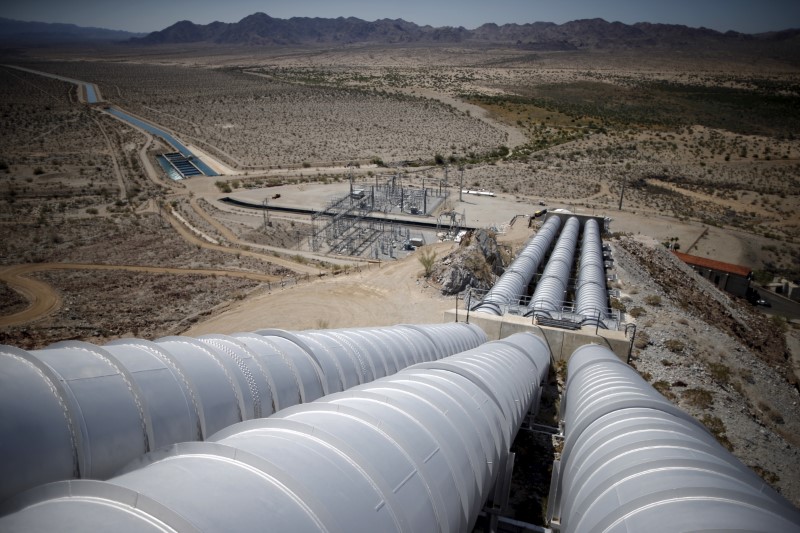* OPEC, other producers meet on Thursday to discuss output cut
* Current production curb was initially to cover only H1 2017
* Cut expected to be extended into 2018
* Rising U.S. output threatens to undermine OPEC-led cuts (Adds comment, updates prices)
By Henning Gloystein
SINGAPORE, May 25 (Reuters) - Oil prices rose ahead of an OPEC meeting on Thursday that is expected to extend output cuts into 2018, adding at least nine months to an initial six-month curb in the first half of this year.
Brent crude futures LCOc1 were trading at $54.41 per barrel at 0539 GMT, up 45 cents, or 0.8 percent from their last close.
U.S. West Texas Intermediate (WTI) crude futures CLc1 were up 40 cents, or 0.8 percent, at $51.76.
Both benchmarks have climbed over 16 percent from their May lows.
Prices have risen on a consensus that a pledge by the Organization of the Petroleum Exporting Countries (OPEC) and other producers, including Russia, to cut supplies by 1.8 million barrels per day (bpd) would be extended into 2018, instead of covering only the first half of 2017. was rife that the cuts may be extended by nine and possibly 12 months, said Jeffrey Halley, analyst at futures brokerage OANDA in Singapore.
The production cut, introduced in January, was initially only to cover the first half of 2017, but an ongoing glut has put pressure on OPEC and its allies to extend at a meeting in Vienna on Thursday. is widely expected the cartel (OPEC) will, at a minimum, extend its production quota for another nine months," said Stephen Schork of the Schork Report.
James Woods, analyst at Australia's Rivkin Securities, said that an extended production cut was already "factored into the price of oil", adding that is was unlikely that a deeper cut would be announced at this stage.
"OPEC officials prefer ... to wait and see the impact of an extension in helping rebalance the market prior to taking any more drastic actions," he said.
Energy consultancy Wood Mackenzie said a nine-month extension "would have little impact on our price forecast for 2017, which is for an annual average of $55 per barrel for Brent".
It estimated that a nine-month extension would result in a 950,000 bpd production increase in the United States, undermining OPEC's efforts.
U.S. oil production C-OUT-T-EIA has already risen by more than 10 percent since mid-2016 to over 9.3 million bpd as its drillers take advantage of higher prices and the supply gap left by OPEC and its allies.
Should the meeting in Vienna result in a cut extension to cover all of 2018, Wood Mackenzie said the tighter market could push average 2018 Brent prices up to $63 per barrel.
Brent has averaged $53.90 per barrel so far this year.
If the meeting fails to agree an extended cut, traders expect oil prices to fall as this would result in ongoing oversupply.
